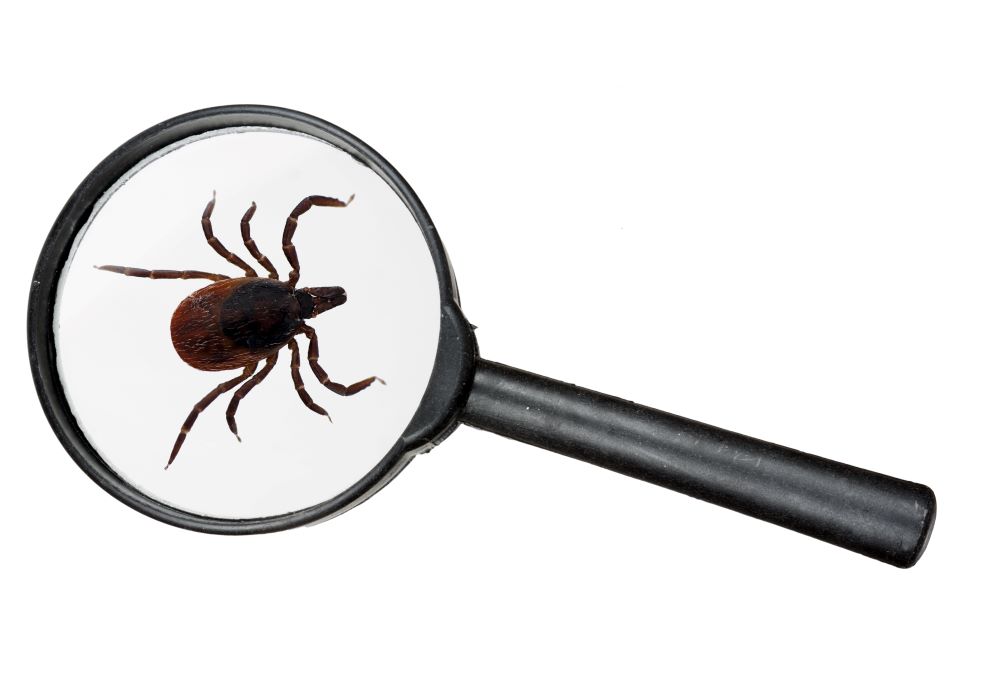Read More...
Tick Activity on Cape Cod by Season
Ticks on Martha's Vineyard [Resources]
With many of us traveling to Martha's Vineyard this summer, and some lucky ones who live there year-round, it's important to be aware of the tick species on the island and best ways to protect our families so we can enjoy the beautiful beaches, and explore the beautiful New England landscape. Unfortunately, based on the deer density and weather conditions there, the tick populations are active in high numbers, and rates of diseases they carry are on the rise.
Martha's Vineyard Board of Health reported that in 2011, 25% of people ages 5 to 18 have been treated for Tick-Borne illnesses (TBI) one or more times, and 54% reported a family member being treated for TBI. Tourists especially are at risk, as many are not aware of the symptoms and don't seek medical treatment.
Read More...Tick Identification Card [Infographic]: Dog Ticks vs Deer Ticks
American Dog Ticks and Deer Ticks are two of the most common tick species found throughout the United States, especially in New England. Both species transmit tick-borne illnesses, and to minimize the danger, tick bite prevention starts with awareness, and reliable information.
Why You Should Spray for Ticks in Early Spring
New England is a hotbed for Lyme disease due to ideal temperatures and accessibility to hosts for deer ticks. We can't change that, but if you spray for ticks in the spring, ideally with safe, all-natural tick treatments, we reduce their population before they can bounce back from winter.
Read More...Protect Your Dog with Pet-Friendly Tick Control
3 Reasons Spraying for Ticks Protects Your Family
Lyme disease, Babesiosis, and other illnesses are spread by the bite of an infected tick, and people living in or visiting New England are especially at a high risk.
If you and your family live near wooded or grassy areas, you could be susceptible to tick bites. By spraying for ticks, if done right, you can protects your family from tick bites and reduce the risk of tick-borne disease in and around your yard and home.
Read More...Pesticide Safety & Deer Tick Control
A quick glance outside is enough to know that mean old Father Winter has finally gone away. It’s time to see Mother Nature’s more pleasant side, but with that comes increased pest activity, reminding us to be proactive about tick control.
Read More...Implement a Spring Yard Clean Up To Reduce Tick Populations
Spring is finally here in New England and it's time for a spring yard clean up to prepare for tick season!
Along with flowers and rain showers, female adult deer ticks emerge to lay thousands of eggs that will hatch later this year. Once new female ticks are born, they have a two-year life cycle ending after they lay thousands of eggs. Combined with wildlife, the two-year life cycle explains why some experience these creepy crawlers for the first time near a home they have lived in for years.
Read More...The Start of Spring is the Start of Deer Tick Season
April showers bring May flowers, but springtime also brings ticks. Part of the arachnid family, ticks are joined by mites, spiders, and scorpions. Like other arachnids, they're often found in shady, damp, leafy, wooded, or grassy areas, including our backyards.
Read More...Natural Tick Prevention: Tips For Reducing Tick Habitat in Your Yard
Tick prevention starts with awareness.
Your yard can make a great home for several species of ticks. Deer ticks, and other species common in New England, transmit Lyme disease and other tick-borne illnesses, and are active from early spring through late fall. In order to protect ourselves and our family from ticks, we need to understand where ticks live in our yards.
Read More...










